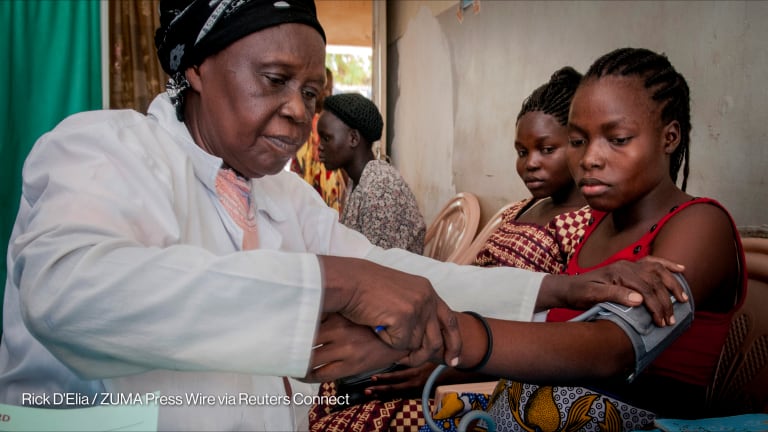
The reform agenda that the U.S. Agency for International Development will put in place this year will include improvements on the agency’s policy and budget capabilities and reforms on its procurement processes, human resources, and evaluation and monitoring procedures, USAID Administrator Rajiv Shah said Wednesday.
In a speech at an InterAction-sponsored forum in Washington, Shah noted that USAID and Obama administration plan to do “a few things differently.” He described changes already underway within his agency as well as other reforms the development community can expect over the next few years.
USAID’s Reform Agenda
The first part of USAID’s reform involves strengthening the agency’s policy and budget capability, Shah said, noting that it is important for USAID to have one voice and a strong development perspective not only in the interagency table or the National Security Council but around the world.
USAID will work with Congress to redefine aid priorities to give the agency’s country missions more flexibility to focus on fewer priorities. The agency already created a bureau of policy, planning and learning, as Devex has reported.
“That bureau has a number of different offices that will support strategic planning, support science and technology as a new area of reinvigorated investment, support country strategies so that we can move away from annual operational planning and move towards five or even 10-year country strategies that demonstrate long-term commitment and strategic focus,” the administrator explained.
The second component of USAID’s agenda is procurement reform. Shah said the agency spends “way too much time” assessing and reporting on process indicators, doing paperwork and working to deliver “almost a false transparency” that does not provide visitors or outsiders how much is really being spent on a program and what results are being obtained.
“That’s why we’re putting procurement reform at the top of the agenda. We’re determined to streamline our processes,” Shah said.
According to Shah, specific goals includes:
- Broadening the base of USAID partner organizations locally and overseas.
- Reducing the size of USAID awards and encouraging greater competition of ideas and strategies.
- Setting specific targets for “building local capacity, driving resources into local institutions and expecting strong institutional development as we practice this work.”
- Moving program design, monitoring and evaluation in-house.
- Prioritizing “true and effective transparency.”
Other than budget and policy and procurement reform, USAID’s overall reform will also include a series changes USAID’s talent management and human resources. These reforms, according to Shah will be launched in August 2010.
“We absolutely need to do this to regain the competitive advantage and regain our edge,” Shah said.
The talent management reforms will include hiring new staff through the Development Leadership Initiative as well as separate mid-career technical professionals. Reforms also include deploying USAID staff faster and more effectively and offering better opportunities to Foreign Service nationals.
On monitoring and evaluation, Shah said: “We need to be thinner in our requests for data and information, but be far more aggressive about using that data and information to make actual management changes in the structures of our programs. And we need to do it all in a way that’s completely transparent.”
New way of doing things
In his speech, Shah also described four themes of how the Obama administration is doing things differently.
The first is on doing a “better job of being evidence-based” and using the latest insight and knowledge to drive effectiveness.
Secondly, the administration is increasing its focus on women and girls.
“In our major food security initiative, we are deeply prioritizing investing in women farmers. We are looking at several decades of history where development efforts have essential prioritized providing services to men,” Shah explained. “And we’re asking our partners to hire female extension workers to collect gender-disaggregated data and to invest in women’s producers’ networks so we can disproportionately drive more of that investment to women.”
The Global Health Initiative also puts a premium on maternal and child health, the administrator added.
The way USAID deals with the private sector will also be improved, according to Shah. There is a need to incorporate best practices in dealing with the private sector and making them partners, he added.
Finally, Shah described how USAID is increasingly aligning its work with country-owned and country-implemented plans and projects. Recognizing how the agency has been “appropriately criticized” for building parallel systems that aren’t often visible to governments, Shah said it is important for USAID not only to align its project with country plans but to also push itself to build local capacity in their partner countries.








